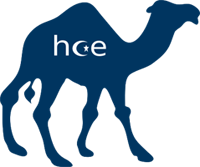
HOE-Working Papers
Recently, historians and social scientists have become increasingly aware of the fact that “modern” historiography does not always acknowledge the existence and richness of other longstanding historiographical traditions. Nonetheless, since it took shape as science in Western Europe in the 19th century, it has been practiced almost everywhere. In consequence, efforts were made to understand this “theft of history”, as Jack Goody once labelled it, to see how universal histories were written in various times and spaces, and to shed light upon different historiographies, ancient and new, modern and traditional. Anthony Grafton even asked the fundamental question: “What was history?” With very few exceptions – noticeably Konrad Petrovszky's 2014 monograph –, the various forms of history writing of Early Modern Ottoman Europe were never the subject of a comprehensive or comparative approach. In spite of many remarkable, however individual results, national historiographies still find it difficult to overcome inherent methodological, linguistic and financial difficulties and to offer proper and concise answers to several decisive questions:
- How was history written in Ottoman Europe?
- How was the past recorded?
- How was it told and re-told?
- How did these people build their imaginary worlds, and what kind of boundaries did they raise between them?
- What kind of bridges do they construct?
In order to fill this significant historiographical gap, the Department of the History of the Ottoman Empire and Turkey and the University Library of the Ruhr-Universität Bochum have started a project entitled “A Bibliographical Database of Historiography in Ottoman Europe (15th-18th Century)”/“Bibliographische Datenbank zur Geschichtsschreibung im Osmanischen Europa (15.-18. Jh.)” in July 2015. This project is funded by the Deutsche Forschungsgemeinschaft (DFG). It aims at identifying, recording and detailing the main published and unpublished historical sources and archival materials relevant to the topic.
- Open Access Policy: CC-BY-NC-ND 4.0 International (https://creativecommons.org/licenses/by-nc-nd/4.0/)
ISSN: 2570-1444

